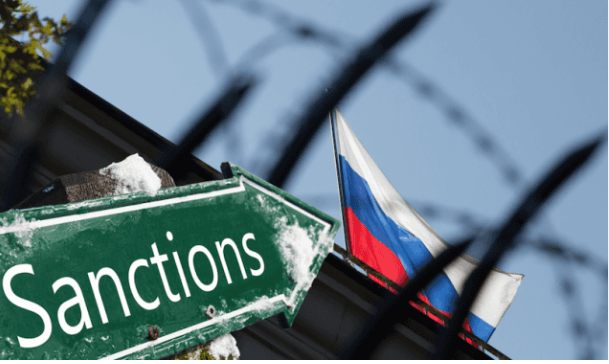The U.S. government will warn Turkey that it risks losing access to key markets if it does not implement U.S. sanctions, especially those that target Russian and Iranian entities. The warning reflects Washington’s continuing frustration with a NATO ally that cooperates with Moscow and Tehran at the expense of Western security.
Brian Nelson, undersecretary of the Treasury for terrorism and financial intelligence, will meet with Turkish government and business officials today and tomorrow, on the heels of visits earlier this week to the United Arab Emirates and Oman. The Treasury Department said Nelson will warn the Turks, as he did the Emiratis, that “individuals and institutions operating in permissive jurisdictions risk potentially losing access to G7 markets on account of doing business with sanctioned entities.”
Last summer, Deputy Secretary of the Treasury Wally Adeyemo issued verbal and written warnings to the Turkish government and associated business organizations to stop enabling Russian financial transfers. In response, Turkish state and private banks terminated their use of Russia’s ‘Mir’ payment system — Moscow’s alternative to SWIFT. Last month, Turkish officials, in collaboration with their American counterparts, took joint action to designate four individuals and two entities tied to the Islamic State (ISIS) for enabling “the terrorist group’s recruitment and financial transfers to and from Iraq and Syria.”
Despite this cooperation, there are signs that Turkey remains a permissive jurisdiction for illicit finance and sanctions evasion. On seven different occasions from 2019 through 2021, Treasury imposed sanctions on Turkey-based persons who were part of ISIS, Al-Qaeda, and Hamas networks. In December 2022, Treasury designated Sitki Ayan, a Turkish businessman and acquaintance of Turkish president Recep Tayyip Erdogan, for facilitating “the sale of hundreds of millions of dollars’ worth of oil for Iran’s Islamic Revolutionary Guard Corps-Qods Force (IRGC-QF).” Additionally, U.S. authorities pressured Ankara last month to prevent Russian airlines from flying American-made civilian airliners to and from Turkish airports, warning that “Turkish individuals are at risk of jail time, fines, loss of export privileges and other measures if they provide services like refueling and spare parts to U.S.-made planes flying to and from Russia and Belarus in violation of export controls.”
U.S. officials should continue pressing Turkey to enforce sanctions. Instances of Turkish cooperation last year indicate that U.S. officials’ requests are more effective when made in person. Washington has leverage because Ankara wants things only the United States can provide — especially the sale of new F-16 fighter jets to modernize its air force. There are strong objections in Congress to approving this sale in light of Turkey’s record of oppression at home, intimidation of neighbors, and obstruction of Finland and Sweden’s NATO membership bids. U.S. officials should impress upon their Turkish counterparts that Ankara’s desire to acquire F-16s is likely only if Congress believes that Turkey is becoming a trusted ally once again. It can start by enforcing sanctions but will have to put an end to the full range of its destructive behaviors.
Sinan Ciddi is a non-resident senior fellow at the Foundation for Defense of Democracies (FDD), where he contributes to FDD’s Turkey Program and Center on Military and Political Power (CMPP). For more analysis from Sinan, the Turkey Program, and CMPP, please subscribe HERE. Follow Sinan on Twitter @SinanCiddi. Follow FDD on Twitter @FDD and @FDD_CMPP. FDD is a Washington, DC-based, nonpartisan research institute focused on national security and foreign policy.
Follow our English language YouTube videos @ REAL TURKEY: https://www.youtube.com/channel/UCKpFJB4GFiNkhmpVZQ_d9Rg
And content at Twitter: @AtillaEng
Facebook: Real Turkey Channel: https://www.facebook.com/realturkeychannel/
